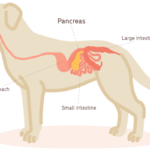Diabetes has become a growing concern worldwide, with millions of people affected by this chronic condition. Type 2 diabetes, in particular, is often associated with lifestyle factors such as poor diet, lack of exercise, and obesity. While managing diabetes with medication is common, there’s increasing interest in diabetes reversal programs that aim to reduce or even eliminate the need for medication by addressing the root causes of the disease.
What is a Diabetes Reversal Program?
A diabetes reversal program is a structured approach designed to help individuals with Type 2 diabetes regain control over their health. Unlike traditional diabetes management, which focuses on controlling blood sugar levels with medication, a reversal program seeks to restore normal blood sugar levels by making sustainable lifestyle changes. The goal is to reduce or eliminate the need for diabetes medication and, in some cases, achieve remission.
How Do Diabetes Reversal Programs Work?
Diabetes reversal programs typically involve a combination of dietary changes, physical activity, and sometimes, behavioral therapy. Here’s a closer look at the key components:
1. Dietary Modifications:
- Low-Carb Diets: Many diabetes reversal programs recommend a low-carbohydrate diet. Reducing carbohydrate intake can help lower blood sugar levels and improve insulin sensitivity. This approach often includes cutting back on refined sugars, processed foods, and starchy vegetables, while increasing the intake of non-starchy vegetables, healthy fats, and lean proteins.
- Intermittent Fasting: Some programs incorporate intermittent fasting, which involves cycling between periods of eating and fasting. This can help reduce insulin resistance and promote weight loss, both of which are crucial for reversing diabetes.
- Whole Foods: Emphasizing whole, unprocessed foods is another key element. These foods are nutrient-dense and help stabilize blood sugar levels, making it easier to manage and reverse diabetes.
2. Regular Physical Activity:
- Exercise is a cornerstone of any diabetes reversal program. Physical activity helps improve insulin sensitivity, allowing the body to use glucose more effectively. A combination of aerobic exercises, such as walking or cycling, and strength training can be particularly effective.
- Regular exercise also aids in weight loss, which is often a critical factor in reversing Type 2 diabetes. Even moderate weight loss can lead to significant improvements in blood sugar control.
3. Behavioral Therapy:
- Changing long-established habits is challenging, and that’s where behavioral therapy comes into play. Programs often include counseling or coaching to help individuals overcome emotional eating, stress, and other psychological barriers that can hinder progress.
- Mindfulness practices, such as meditation and yoga, may also be incorporated to reduce stress, which can contribute to blood sugar spikes and insulin resistance.

The Science Behind Diabetes Reversal
Several studies have shown that Type 2 diabetes can be reversed, especially in its early stages. For instance, research has demonstrated that intensive lifestyle interventions, including weight loss and dietary changes, can lead to significant improvements in blood sugar control. Some individuals have even been able to discontinue their diabetes medication after achieving and maintaining normal blood sugar levels.
The concept of diabetes reversal is based on the idea that reducing the body’s fat stores, particularly around the pancreas and liver, can improve insulin sensitivity. When the body becomes more responsive to insulin, it can process glucose more effectively, reducing the need for medication.
Benefits of a Diabetes Reversal Program
The potential benefits of a diabetes reversal program extend beyond just blood sugar control. Here are a few advantages:
- Improved Overall Health: By adopting a healthier diet and increasing physical activity, participants often experience better cardiovascular health, improved cholesterol levels, and lower blood pressure.
- Reduced Medication Dependence: Successful diabetes reversal can lead to a reduction in or complete elimination of diabetes medication, reducing the risk of side effects.
- Weight Loss: Weight loss is a common outcome of diabetes reversal programs, contributing to better health and reduced strain on the joints and heart.
- Enhanced Quality of Life: Many participants report increased energy levels, better sleep, and an overall improvement in well-being.
Conclusion
Diabetes reversal programs offer a promising alternative to traditional diabetes management. By focusing on sustainable lifestyle changes, these programs can help individuals with Type 2 diabetes regain control over their health and, in some cases, achieve remission. While not everyone may experience complete reversal, the potential benefits, including reduced medication dependence and improved overall health, make these programs worth considering for those looking to take charge of their diabetes journey.
Feel free to submit more guest posts through Links Building Servcies - Best Prices. Buy Author Account / 1$ Guest Post Here






















